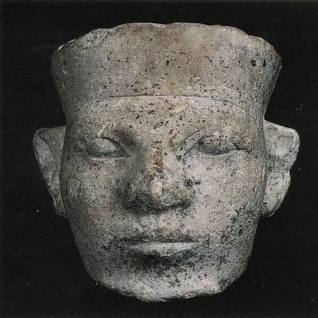![[:en]Chinese emperor[:]](https://i0.wp.com/african-century.org/wp-content/uploads/2021/04/liu-bang-Hangaozu.jpg?fit=274%2C420&ssl=1)
How does Chinese civilization differ from Western civilisation?
A distinguished Chinese Professor at Tsinghua University (Note 1) expresses a view shared with Harvard’s Professors William Kirby and Peter Bol (Note 2)) that the core difference between Chinese and Western culture is that Chinese culture is based on ritual and western culture is based on law.
This is the wrong answer to the wrong question. There was a difference between China in 1840 and the US/Europe in 1840 but was this based on fundamental cultures or ethnicities? When Western scholars talk of comparing the West with China we note how geography becomes a moveable feast. Cultures that are normally considered non-Western are roped into the definition so that almost everything west of the Indus Valley becomes Western civilization. With barely a pause for breath, this is refined by the Harvard Professors to the Mesopotamian roots and then basically to ancient Greece.
There are two fundamental errors here, one on each side. The Chinese scholars keep looking for unique characteristics of China but this is to repeat the ethnic singularity of Western ethnocentrism. When Ch’ang Ch’un visited Ghengis Khan his wisdom was acknowledged immediately and Taoist priests were accorded a special place throughout the Khan’s kingdoms. When Leibniz studied Chinese manuscripts and ideas he assumed they were talking about a world he shared. As Gerlach has also explained, Quesnay’s adoption of Wu Wei was on the basis that it said something about all people and all countries (Note 3) There are civilisations or cultures of China but not Chinese civilisation or culture.
Where in the canon of the Taoists or the work of Confucius is there a requirement to be Chinese for the wisdom to hold to be true? It is clear, the Western requirement to ‘define’ the Chinese is a wish to put it in a box.
A second and related error on the other side is that the West that is described in the discussion is entirely fictitious. In an act of utter absurdity, Harvard professors bring up a vase depicting the mythical character of Achilles to exemplify Western individualism. Apart from the fact that Achilles was a mythical and fictitious character, there are many monuments in Eurasia that are every bit similar to the Chinese. Heroic figures are celebrated in all cultures and the rise of Ghengis Khan or of the persons that overthrew the reigning Emperors are all examples of heroic individuals. Liu Bang rose from a humble peasant background to become Emperor and founded the Han dynasty. This puts Walter Mitty like dreams into another dimension and one can barely describe this as a story of ’rags to riches’ as that meme does not even partly capture the event. What is key to understanding what is going on is to recognise that the image presented of the West is ideological for entirely internal reasons. The population of the US has to be sold the idea that certain features of life in America, however apparently oppressive they might appear, are key to the success of the USA. If we do not have rugged individualism, leaving health care to each individual’s ability to pay, if we did not have free markets that generate great disparities in wealth we would be poor like those underdeveloped countries such as China. If China is no longer poor it must be because it has been cheating and manipulating the market etc. Chinese scholars must stop accepting Western scholars self-description as anything close to factual reality.
It may seem a subtle difference – Chinese culture or culture of China. However the former is part of an argument that allows Western culture to be ‘universal’ and Chinese culture to be parochial. Western culture, it is argued, is based on universal principles e.g. the value of the individual, law etc, whereas Chinese culture is based on specific, i.e. peculiar, Chinese characteristics that cannot be extended beyond its borders. China’s culture has changed and evolved over history and the idea of ‘Chinese civilisation’ plays to a fundamentally static view of China that was embodied in the idea of ‘oriental despotism’.
updated: 3 June 2021
NOTES
1.https://learning.edx.org/course/course-v1:TsinghuaX+00690212X+1T2021
2. https://learning.edx.org/course/course-v1:HarvardX+SW12.1x+3T2020/home

